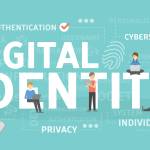United Kingdom
The Department for Work and Pensions (DWP) has outlined how it is working with the Government Digital Service on rolling out the new GOV.UK One Login platform.
In November of last year, the DWP began implementing One Login. The DWP’s deployment began by incorporating One Login into its service for those reimbursing government for benefit overpayments – for whom the sign-in platform “provides an improved experience for people with a debt to repay”, according to the DWP report, via Public Technology.
The department said One Login “supports our agenda to prevent fraud and error as through this there are reduced identification failures alongside enhanced security. It does this by allowing users to verify their identity and then subsequently sign in and manage multiple public utilities online through a single-entry point.”
Europe
The European Union has confirmed that its Entry/Exit System (EES) will officially launch on October 12, 2025, introducing digital biometric border controls for non-EU nationals entering Schengen countries. The system will be phased in over a 180-day transition period, becoming fully mandatory on April 10, 2026. During this six-month window, member states may choose to gradually introduce EES at external borders or deploy it fully on the initial start date.
ID Tech Wire reports that the EES is designed to automate border checks for non-EU travellers entering the Schengen Area for stays of up to 90 days. During their first registration, travellers will be required to submit biometric data, including four fingerprints and a facial image. On subsequent trips within three years, travellers will typically only scan their passports; the system will then verify identity using a stored facial image and the passport’s chip photo.
Entries, exits, and refusals of entry will be digitally recorded, replacing manual passport stamping. However, during the transition period, border officials will still apply stamps alongside the new digital process as part of an interim protocol.
Vietnam
Vietnam has launched NDAChain, a national blockchain platform to provide infrastructure for digital identity, government records, and public sector data management. The platform builds upon Vietnam’s ambitious goal to become a top 30 digital nation by 2030. The system encompasses multiple sectors including government affairs, finance, healthcare, logistics, and education, reports Mobile ID World.
Europe
The European Commission is following the UK with technical specifications for an EU-wide age verification system that will require digital identity credentials to access websites containing adult content.
Following the UK’s implementation of mandatory age verification for adult content platforms on January 17, 2025, the European Union has accelerated its own digital identity requirements through the Digital Services Act (DSA) framework, with full implementation scheduled for completion by the end of 2026.
Popular services including Reddit, Bluesky, X and Grindr have initiated age confirmation procedures throughout the UK, requesting photographic identification or government documentation from users.
Belize
If you liked this content…
The government of Belize is to roll out a national digital identity system for residents, offering a range of functionalities in line with broader digitisation objectives.
The plan has the backing of Belize’s Cabinet, and authorities are eyeing a three-year timeline for launch. The proposed digital ID system will be biometric-based and provide identification services to residents while streamlining access to public and private sector services.
Belize has a range of ID systems, but the incoming offering is considered an attempt to consolidate them into a single platform.
Ireland
Ireland has completed a pilot of its national digital identity wallet involving more than 500 public servants who volunteered for the testing. The Irish government is now considering its official launch.
“Following positive feedback, the Government is examining the possibility of launching the wallet on a limited basis before the end of the year,” said a spokesperson of the Department of Public Expenditure, the agency overseeing the project.
Ireland still has no guidance on whether the smartphone app will become “mandatory but not compulsory” for accessing services such as pension and healthcare, according to the Irish Independent. EU rules, however, state that the digital ID wallet is supposed to remain optional, noted Biometric Update.
Global
The OpenID Foundation has announced that interoperability testing for its OpenID for Verifiable Credential Issuance (OpenID4VCI) specification achieved an 87 percent success rate. The testing involved 59 pairings between seven issuers and five wallet providers from around the world, with 47 successful outcomes. The trials were conducted in real-world conditions over eight days, with participants engaging in live remediation of issues as they emerged.
The specification is now in a 60-day public review period, after which OpenID Foundation members will vote on its formal approval as a final standard.
Global
Regula, a developer of identity verification (IDV) solutions and forensic devices, has entered a partnership with Indicio, a specialist in Verifiable Credential technology and decentralised identity solutions. Together, the two will deliver portable digital trust by issuing document and biometric identity verification solutions as tamper-proof Verifiable Credentials.
The companies said they aim to delivers a holistic infrastructure for creating, storing, and verifying digital identities. The Verifiable Credentials could be deployed across a range of formats, including those specified by the European Union’s Digital Identity Wallet (EUDI), Digital Travel Credentials (DTC) following International Civil Aviation Organization (ICAO) specifications, W3C credentials and the mobile document-mobile driver’s license format (ISO 18013-5, mdoc/mDL).
South Korea
South Korea is extending its mobile digital identity system to Korean nationals living abroad through the newly launched Mobile Overseas Korean Identity Verification Card. The initiative builds on the successful nationwide rollout of South Korea’s mobile resident registration card, which reached 52 million domestic citizens as of March 2025. The expanded system will enable overseas Koreans to securely access government and private sector services without requiring a domestic mobile number or resident registration card.






